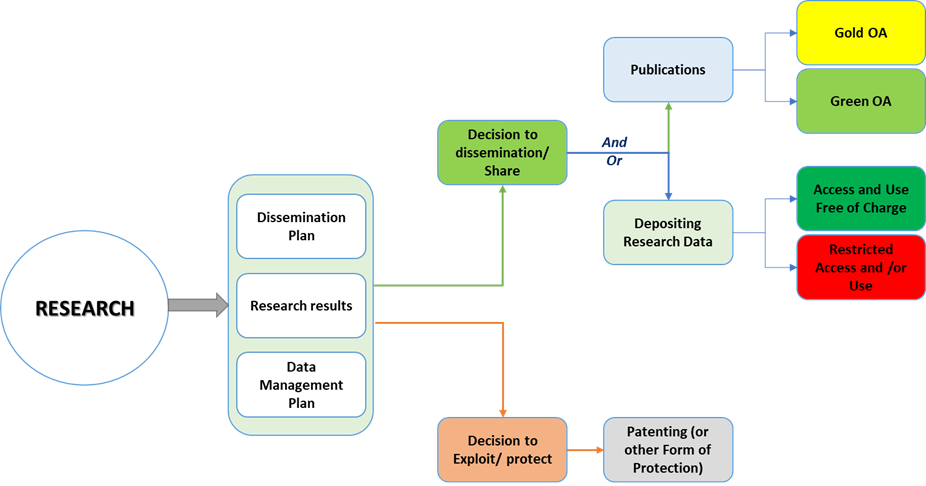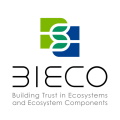Executive Summary
This deliverable present the Data Management Plan (DMP) of BIECO project which is intended to be a ‘living’ document that will outline how the BIECO research data will be handled during and after the project, and so it will be reviewed and updated at regular intervals. It presents the data collected in the project and how the project will make this data FAIR (Findable, Accessible, Interoperable, and Reusable), in accordance with the concept of FAIR data management.
If follows the template of DMP provided by the EC in the Guidelines on FAIR Data Management in Horizon 2020, version 3.0, July 2016 , and provides technical details on the data collected, as well as purpose for data collection, data utility and what, where and how data can be accessed and reused.
Introduction
The Data Management Plan (DMP) describes the data management life cycle for the data to be collected, processed and/or generated by the BIECO project. By BIECO being a H2020 project this DMP follows the Horizon 2020 DMP template that was designed to be applied to any Horizon 2020 project that produces, collects or process research data. The DMP aims at defining the management strategy of data generated during the project with the purpose to making research data FAIR.
This first DMP describes the data management principles and strategies, tools and BIECO data: data set, “Open Research Data Pilot” (ORDP) and BIECO Demonstrator that will be produced as part of the project activities and that are relevant to be included in the DMP. The consortium also targets open access when publishing papers and articles.
The DMP is a living document to be updated as the implementation of the project progresses and when significant changes occur, such as (but not limited to) new data, changes in consortium policies and changes in consortium composition and external factors. Therefore, the DMP will be reviewed and updated at regular intervals.
Data Summary
The BIECO DMP aims to provide a strategy for managing key data generated and collected during the project and optimize access to and re-use of research data. The main motivation of data collection/generation in BIECO project is to identify vulnerabilities across complex ICT systems. Some of the data that is collected (e.g. Task 3.2) and generated (e.g. Task 3.3) for this purpose is generally confidential and will not be open access. For example in Task 3.2 the collected data will be a combination of use cases dataset and public resource. The use cases dataset is confidential and could not be published for security reasons. Project partners should make sure that all possible data are made available for verification and re-use unless the task leader can justify why data cannot be made openly accessible.
All European Union-funded projects must try to disseminate as much information as possible and on top of that, the BIECO project was signed up to the ORDP which means that we are committed to giving open access to data generated during the project unless it goes against our legitimate interests. In this regard, the main purpose of the DMP is to ensure the accessibility and intelligibility of the data generated during the BIECO project in order to comply with the guidelines of the ORDP. Each data set created during the project will be assessed and categorized as open, embargo, or restricted by the owners of the content of the data set.
All the datasets, regardless of their categorization, will be stored in each of the participant entities’ databases and in the Microsoft Teams folder created as an internal database of the partners. In addition, those categorized as open or embargo will be publicly shared (in the case of the embargo, after the embargo period is over) through the public section of the project website and ZENODO .
ZENODO is an open access repository for all fields of science that allows uploading any kind of data file formats, which is recommended by the Open Access Infrastructure for Research in Europe (OpenAIRE).
2.1 Data Management Plan (DMP) Guiding Principles
The Data Management Plan of BIECO is realized within the Work Package 1.
The BIECO project DMP follow the principle of Open Access (OA) according to the Horizon 2020 guideline summarized in the Diagram presented in Figure 1.

Figure 1 Open access to research data and publication decision diagram (from Guidelines to the Rules on Open Access to Scientific publications and Open Access to Research Data in Horizon 2020)
The others main principles of the BIECO project´s DPM are as following:
• This DMP has been prepared by taking into account the template of the “guideline of the Data Management in Horizon 2020”
• The DMP is an official project Deliverable (D1.3) due in Month 6 (February 2021), but it will be updated throughout the project, and the final version of this document (D 1.4) will be available in month 32. By finalizing each BIECO document, such as deliverable, report, article, workshop report, conference abstract, the responsible partner required to complete Data Inventory Table (available in Annex 1) for the data that collected and generated in their document, after and deliver it to the UNI, for updating DMP. The first initial version will evolve depending on significant changes arising and periodic reviews at relevant reporting stages of the project.
• The consortium complies with the requirements of Regulation (EU) 2016/679 and of the Council of 27 April 2016 on the protection of natural persons with regard to the processing of personal data and on the free movement of such data and repealing Directive 95/46/EC (General Data Protection Regulation, GDPR). Guidance on how these regulations interact with open-access data policy .
• Type of data, storage, confidentiality, ownership, management of intellectual property and access: procedures that will be implemented for data collection, storage, access, sharing policies, protection, retention, and destruction will be in line with EU standards as described in the Grant Agreement and the Consortium Agreement.
BIECO Data Management Strategy
As a project participating in the ORDP in Horizon 2020, the DMP’s Data Management strategy of the BIECO project is focused on the observation of FAIR Data Management Protocols. This document addresses for each data set collected, processed, and/or generated in the project the following elements:
Dataset reference and name: Internal project Identifier for the data set to be produced. This will follow the format:
WPNumber-TaskNumber-PartnerName-DataSubset-DatasetName-Version-DateOfStorage
where the project name is BIECO, the Partner Name represents the name of the data custodian (WP Lead/ Task Leader).
Dataset description: description of the data generated or collected, including its origin (in cases where data is collected), nature and scale and to whom it could be useful, and whether it underpins a scientific publication. Information on the existence (or not) of similar data and the potential for integration and reuse.
Standards and metadata: reference to existing suitable standards. If these do not exist, an outline on how and what metadata will be created.
Data sharing: description of how data will be shared, including access procedures, embargo periods (if any), outlines of technical mechanisms for dissemination and necessary software and other tools for enabling reuse, and definition of whether access will be open or restricted to specific groups. Identification of the repository where data will be stored, if already existing and identified, indicating the type of repository (institutional, standard repository for the discipline, etc.). In cases where the dataset cannot be shared, the reasons for this will be stated (e.g. ethical, rules of personal data, intellectual property, commercial, privacy-related, security-related).
Archiving and preservation (including storage and backup): description of the procedures to be put in place for long-term preservation of the data, including an indication of how long the data should be preserved, the approximate end volume, associated costs, and how these are planned to be covered.

